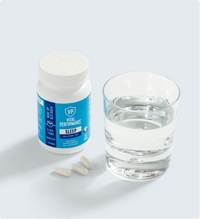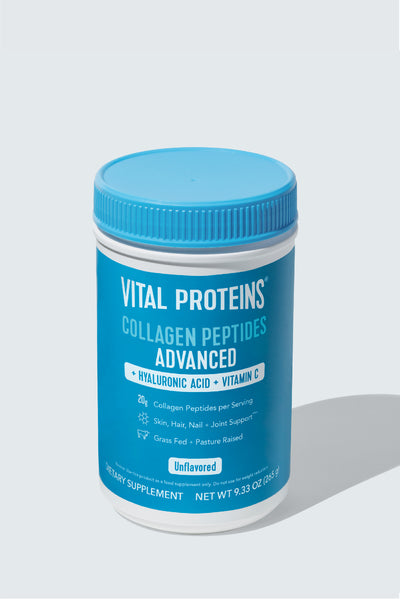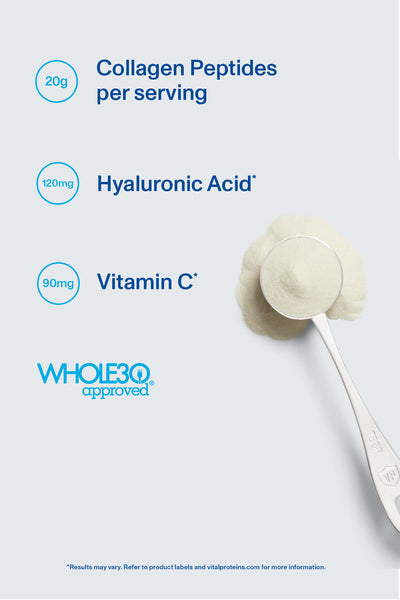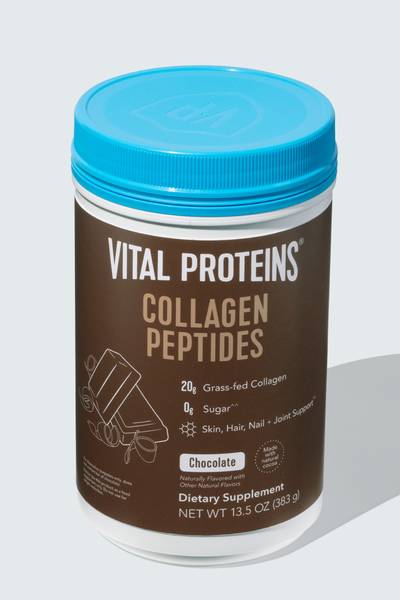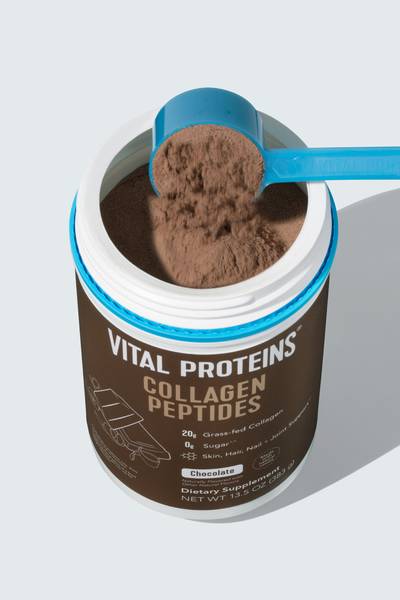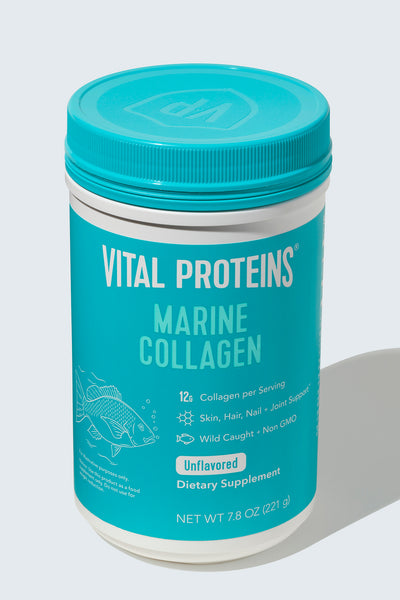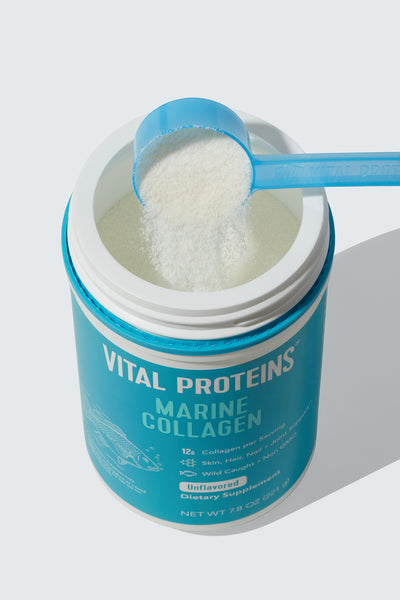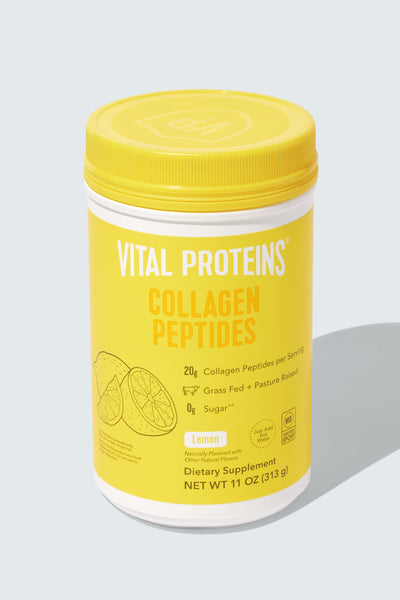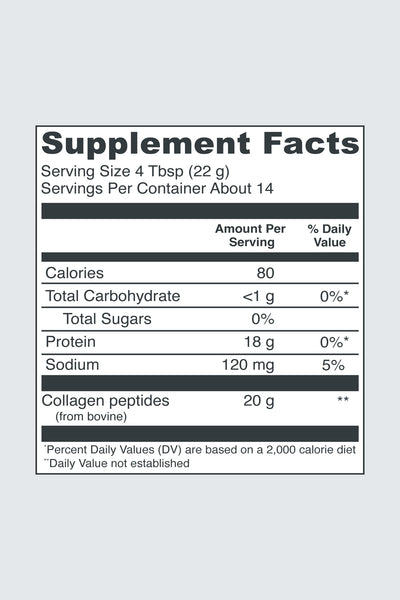There’s no doubt many of us would love to keep a firm, younger-looking complexion forever, and while unfortunately there’s no fountain of youth out there, collagen (or lack thereof) is one thing that plays an important role in our skin goals. While the natural production of collagen starts to decline in our mid-twenties, collagen peptides can be taken in powder or capsule form. (After all, our blue tub of Collagen Peptides is what Vital Proteins® is famous for.)
But lately, you might’ve noticed collagen filling up the beauty shelves in a different way—in topically applied skincare products like creams and serums. If you’re left wondering if this new skincare craze is worth the hype, you’re not alone. We set out to find out a little more about the effectiveness of ingestible collagen vs. topical collagen. Below, find out what we uncovered with a little help from the experts.

What is collagen?
Before we really delve into the details, let’s start by doing a quick collagen recap. As Harvard University explains in its blog, The Nutrition Source, collagen is the most abundant protein found in the body and its fiber-like structure is used to make connective tissue. “Like the name implies, this type of tissue connects other tissues and is a major component of bone, skin, muscles, tendon and cartilage — it helps to make tissues strong and resilient, able to withstand stretching.”
When it comes to skin in particular, collagen is key to providing the volume necessary to keep skin from sagging and for maintaining a plump, youthful complexion.**^ Collagen is produced naturally by our skin and its production declines with age. Exposure to environmental factors, such as UV light, leads to the breakdown and disorganization of collagen, leading to elasticity loss and the formation of wrinkles, Joshua Zeichner, MD, a board-certified dermatologist based in New York City tells Lively. Aging is simply one of those natural processes we all have to go through, and as a result, collagen in the deep skin layers changes from a tightly organized network of fibers to an unorganized maze. The good news is that there are indeed plenty of options out there when it comes to incorporating collagen into your routine to help with the natural decline of this protein.
Are collagen-infused beauty products effective?
It seems when you browse the beauty aisle, collagen is popping up as an ingredient everywhere from creams to serums and even makeup. But does applying topical products with collagen actually do anything, or is it more of a hype situation? Since collagen is structurally a very large molecule, most topical collagen products won’t penetrate through the outer skin layer, says Zeichner. To put it simply, basic collagen-rich creams can provide excellent emollient benefits — think soft and hydrated skin — but they’re not able to break through the skin barrier and stimulate new collagen production directly.
While collagen-infused beauty products are not likely to increase your body’s collagen levels, the plus side is that the right skincare products can actually promote and protect your collagen, says Christine Choi Kim, M.D., a board-certified medical and cosmetic dermatologist in Los Angeles.“Topical retinoids are scientifically proven to stimulate collagen formation and are typically used at nighttime. During the daytime, use an antioxidant serum with vitamin C to decrease inflammation and brighten the skin,” she adds. And, applying a daily broad-spectrum sunscreen can protect your skin against free radical formation and collagen breakdown.

What are some other ways to avoid collagen loss?
Aside from incorporating ingestible collagen from Vital Proteins® into your routine, there are certainly other lifestyle adjustments you can make to help with collagen loss.
One big one is to wear sunscreen regularly since UV rays are known to break down collagen, in turn leading to a loss of elasticity and wrinkles. Incorporating certain foods into your diet including meat, poultry, fish, dairy, eggs, soy, nuts, whole grains, berries, bell peppers, and tomatoes are thought to nurture collagen production as well — make sure to chase down all this nutrient-dense food with plenty of H2O, too.



